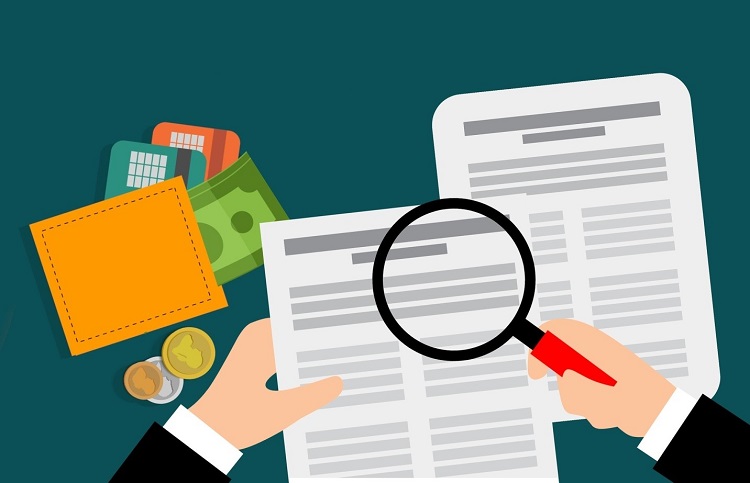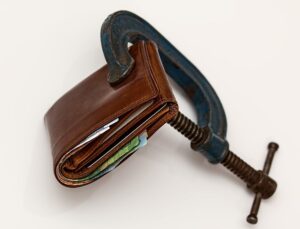How to Get a Billig Forbrukslån Lav Rente

If you’re in need of a cheap consumer loan, there are a few things you can do to improve your chances of getting the best rates and terms.
First, make sure you have a good credit score. Taking steps to raise your score, like lowering your credit utilization and checking your credit report for errors, can help you get better deals.
Check Your Credit Score
Your credit score is a number that lenders and charge card issuers use to help them determine whether you’re a good risk for a new line of credit. It’s an important number to understand because it can make a big difference in the kind of loan you’re approved for and how much interest you pay on it.
Credit scores are the result of a complex mathematical algorithm that quantifies information in your credit report. Your credit score helps lenders, like banks, insurance companies and landlords assess how well you’ve managed your finances. Typically, the higher your credit score, the more likely you are to be approved for loans and to receive good rates on them. This is because your score lets lenders see how you manage your money, so they can know that you’re a safe bet when it comes to paying back debts on time.
A good credit score is generally considered to be 700 or higher on a scale of 300 to 850, and can help you get approved for a better rate and terms on your loan.
Your score is based on information from the three nationwide consumer reporting agencies: Equifax, TransUnion and Experian. These CRAs collect and manage data from your financial institutions, including banks, mortgage companies and charge cards. You can click here for more information about CRAs.
You can check your score anytime, for free. You can also sign up for a service to receive alerts when there’s significant activity on your credit report.

The factors that go into your score vary depending on the type of score and the particular scoring model that’s being used by a lender. However, most scoring models will include the following five factors: payment history, amounts owed length of credit, new credit and credit mix.
Payment history is the most important factor when calculating your credit score, accounting for about 35% of it. It shows whether you’ve paid your bills on time in the past, how often you’ve missed payments and how recently they were missed. A late payment will negatively impact your credit score, so it’s best to pay on time every month.
Amounts owed make up about 30% of your score, as does the type of debt you owe. This includes totals owed on all of your outstanding loans and types of debt, such as charge cards, auto and home loans, student loans and mortgages.
Length of credit is another factor in a FICO score, and it shows whether you’ve used different kinds of credit in the past.
How many new credit accounts you’ve opened recently is a minor factor in determining your FICO score, but it can impact it. If you’ve opened a lot of new accounts within a short period of time, it may lower your score, as it assumes that you are a riskier credit risk than someone who hasn’t shopped for and received any new credit in the last year.
It’s also possible that recent applications for new credit, which can result in a hard pull on your credit report, can temporarily lower your score. It’s best to apply for new credit only when you have the funds to cover the costs of a purchase, or as a way to build your credit, but don’t be afraid to open an account if you need one.
Although it may seem counterintuitive, having a mix of revolving and installment debt, such as charge cards, retail accounts and mortgages, will benefit your score.
Your debt-to-income ratio also plays a role in your FICO score. This is the amount of your monthly debt, such as a mortgage or charge card, divided by your total income.

Avoid Overspending
Overspending is a common problem among consumers, and it can lead to serious financial problems if you don’t take steps to stop it. In addition to the potential financial consequences, overspending can affect your FICO score and increase your interest rate.
Keeping track of how much you spend is one of the best ways to avoid overspending. This is because it allows you to see where your money is going and where it’s not being spent, and will help you identify areas where you can cut back or save. You can also use a budget to create a spending plan that limits your spending to your monthly income.
It’s important to remember that overspending can be a result of many factors, including lifestyle creep and impulse buying. It can also be caused by a lack of financial planning or decision-making skills.
Another common factor is using a lot of credit, which makes it easy to buy things that you don’t actually need. This can lead to overspending and a high credit utilization ratio, which means you are using a larger amount of your available credit than you should. Lenders prefer that you use less than 30% of your total revolving credit limits.
Other factors that may contribute to overspending include the way you think about your finances, social pressure and media. For example, advertisements can make consumers believe that they are saving money by purchasing products or services at a discounted price. In addition, social pressures to go out for dinner or vacation with family and friends can make it easy to fall into a high-spending habit.
These factors can lead to overspending in the short term, but if you make changes that help you manage your money better in the long run, you will be happier and healthier financially. For example, a new budget can help you prioritize your expenses and save for short- and long-term goals, such as building an emergency fund or paying off debt. You can click the link: https://www.wikihow.com/Create-a-Budget for tips on how to create a budget.
If you’re having a hard time focusing on your finances, consider a personal finance coach. These experts can help you set up a budget and provide tips to keep your expenses in check. They can also offer advice about debt management and establishing good financial habits. If you have the option available, it may benefit you to improve your FICO score before you apply for a loan.

Make Your Payments on Time
Small consumer loans are meant for consumers who need quick access to money. They are typically offered through online lending platforms, and they provide a convenient way to borrow a limited amount of money in a short period of time. However, they have higher interest rates than charge cards and may contain additional fees.
If you’re looking for a cheap consumer loan, it’s important to keep in mind that you’ll need to make your payments on time so that you can avoid costly penalties and fees. The best way to do this is to set up automatic payments.
You can do this by opening a checking or savings account with your chosen lender and enrolling in their autopay program. This will allow you to make your payments automatically and save you from paying a late fee or prepayment penalty.
Don’t Borrow More Than What You Can Afford
One of the most important things to remember when it comes to your financial well-being is to be smart about your choices. This is particularly true when it comes to financing your purchases, whether that is through a cheap consumer loan or other financial means.
One way to do this is by determining how much debt you can afford to take on. A popular method of determining this is to first calculate your debt-to-income ratio, then, try and reduce your debt by cutting back on other expenses and/or taking on a part-time job to boost your income. This is a great way to ensure you will receive the billigste forbrukslån lav rente available to you. Following this advice can end up saving you a lot of money in the long run.
It’s also helpful to shop around and compare the rates offered by different lenders. This will help you find the best deal on a loan that’s affordable for your needs. You can do this by comparing monthly payments, interest rates, terms and fees.
If you’re not quite sure about your budget or your finances as a whole, consider working with a financial advisor who can help guide you through the process. They can show you the best strategies for avoiding debt, and they can also recommend products that are a good fit for your financial situation.
Many consumers do not know about the loan options available to them. By learning more about your lending score and improving it, you can ensure you find a loan with the lowest possible rates.






